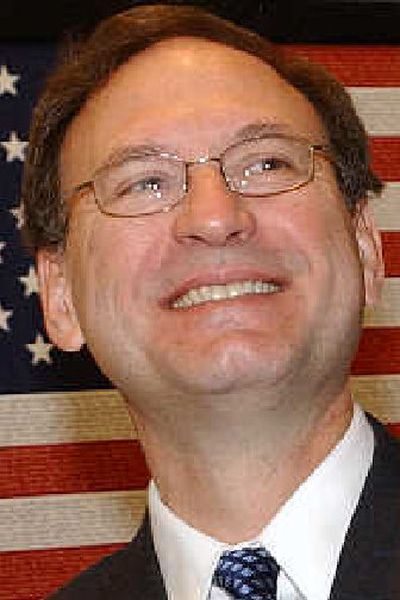Alito opposed to abortion as young lawyer

WASHINGTON – Supreme Court nominee Samuel Alito boasted about his work arguing that “the Constitution does not protect a right to an abortion” while trying to become a deputy assistant attorney general in the Reagan administration, according to documents released Monday.
Alito, a federal appellate judge nominated by President Bush to the nation’s highest court, was a young lawyer working for the solicitor general’s office in 1985 when he applied for the position under Attorney General Edwin Meese.
As part of his application, Alito sent a document saying his work in the solicitor general’s office had included helping “to advance legal positions in which I personally believe very strongly.”
“I am particularly proud of my contributions in recent cases in which the government argued that racial and ethnic quotas should not be allowed and that the Constitution does not protect a right to an abortion,” he wrote.
That sentence provides one of the first clear-cut statements attributed to Alito about abortion, which will be one of the main topics of his January confirmation hearing as retiring Justice Sandra Day O’Connor’s replacement.
“I think that it is more reason to question him closely at the hearing,” said Sen. Arlen Specter, R-Pa., who will run Alito’s Jan. 9 hearings as chairman of the Senate Judiciary Committee.
Specter, an abortion rights moderate, said a lot of people have shifted their views about abortion over the years and that he has found Alito to have “a very heavy commitment to legal interpretation which might differ from his own personal views.”
Bush picked Alito after White House counsel Harriet Miers withdrew her Supreme Court nomination when confronted by withering criticism from some conservatives.
“This may explain why the right wing expressed such enthusiastic support for Judge Alito after campaigning against Harriet Miers,” said Sen. Edward Kennedy, D-Mass., one of several senators who will meet with Alito privately today. “When he comes before the Senate, Judge Alito faces a heavy burden of demonstrating that he no longer holds these extremely troubling views and would bring an open mind and a real commitment to fundamental rights and freedoms.”
O’Connor has been a crucial swing vote on abortion on the Supreme Court, and Alito’s opponents fear that he and recently confirmed Chief Justice John Roberts would swing the Supreme Court to the right and lead to the overturning of the 1973 landmark Roe v. Wade decision establishing abortion rights.
Alito, 55, has told senators in his two weeks of private meetings that he has “great respect” for Roe v. Wade as a precedent, but he did not commit to upholding it.
Alito “joins a long list of jurists who have written that Roe was wrongly decided, including Ruth Bader Ginsburg before she was confirmed to the court,” said Sen. John Cornyn, R-Texas, a member of the Judiciary Committee. “The question is whether he will put his personal views aside as any judge should and base his rulings on what the Constitution says. His long track record as a federal appeals court judge shows that he has indeed put his personal views on abortion aside, and I have every confidence he will continue to do so.”
The document was included in more than 100 pages of material about Alito released by the Ronald Reagan Presidential Library and the George H.W. Bush Presidential Library on Monday.
Some abortion rights groups already have come out against Alito because of his work as a federal appellate judge, including a dissent on an appeals court decision striking down a law requiring women seeking abortions to notify their spouses.